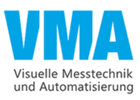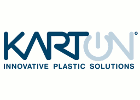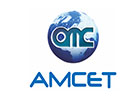There was a lot to discuss during the visit of Anna Schwamberger, member of the state parliament, and Dieter Janecek, member of the Bundestag - both Bündnis 90/Die Grünen - to the international glass plant manufacturer HORN Glass Industries at its headquarters in Plößberg. Time was pressing during the visit, as it is with the topic of energy.
The industrial plant manufacturer HORN is one of the world's leading producers of glass melting furnaces for the glass industry. With state-of-the-art technology and intensive research, they try to operate these plants as energy-efficiently as possible. But glass production requires up to 1600 °C in the furnace and is therefore one of the most energy-hungry industries in Germany. So it stands to reason that topics such as the energy crisis and the energy turnaround are of growing importance and are the subject of controversial debate.
The members of the Bündnis 90/Die Grünen parliamentary group faced this discussion during a company visit. Board member Stephan Meindl welcomed the guests, while Marketing Manager Matthias Kunz introduced the HORN company before a lively discussion began. Starting with bureaucratic hurdles that the stove manufacturer faces when working in Europe, the topic of energy quickly caught fire. Glass is a sustainable and future-proof material in a wide variety of applications and is increasingly displacing other materials such as plastic. The disadvantage, however, is its energy-intensive production. Therefore, Meindl called on politicians to secure the media supply, e.g. gas, electricity, hydrogen, for industry and to make it available at a reasonable price. Only in this way can industry in Germany produce in a competitive manner.
The board of HORN Glass Industries also addressed the shortage of skilled workers. Here, politics is called upon to improve the welcoming culture of foreign skilled workers. "We are desperately looking for skilled workers from all engineering disciplines," said Meindl. The company in Plößberg currently covers its need for qualified personnel with foreign subsidiaries, e.g. in the Czech Republic and Croatia.
Dieter Janecek and Anna Schwamberger promised that politics would work intensively to simplify the recruitment of skilled workers on the one hand and to secure the energy supply on the other. The construction of the LNG terminals is a first step. In addition, efforts are being made to purchase energy worldwide and thus secure the supply by means of an energy mix at reasonable prices.
Despite the pressing time and the far-reaching issues, there was still time at the end for the politicians to get an impression of the professional work of HORN, a company full of skilled workers, technicians and engineers, and to replenish their energy reserves with some canapés.


























